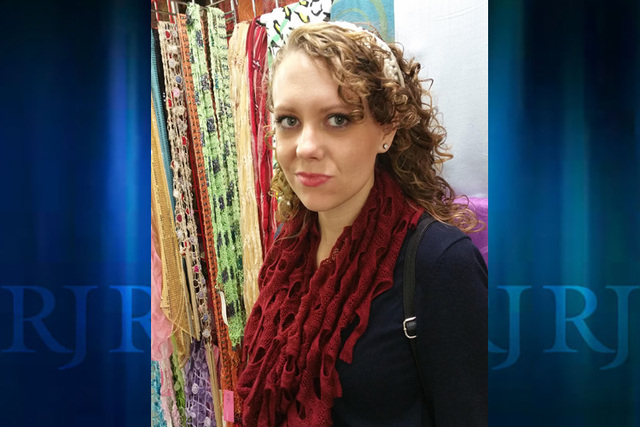Budget problems push drug court to stop taking new referrals
If not for the Clark County drug court program, Dana Melson might be in prison.
She might be strung out in the streets, still shoplifting to feed her heroin addiction.
She might be dead.
“This completely gave me the opportunity I needed to change my life,” Melson said after graduating from the year-long program earlier this month. “Sometimes you have to be forced to do things to realize that you need them. In this case, that’s what I needed. I needed something like an ultimatum.”
But for at least the next few months, people like Melson might not get the chance she did.
Drug court recently stopped accepting new referrals, and the program might be full through this spring, according to Judge Linda Bell, who has presided over the county’s specialty court program for two years.
The program is aimed at people who face a variety of criminal charges that might have stemmed from a drug habit. Instead of being sent to prison or placed on probation with only an officer to monitor them, a judge orders them to intensive counseling and oversight within the court system.
There are only two coordinators for nearly 500 people enrolled in the program at the District Court level. One position is budgeted with the county, while the other is paid through federal grant money. In Justice Court and Municipal Court, the ratio of coordinators to participants is 1 to 40, Bell said.
Officials are scrambling to find more funding. The Fiscal Year 2016 budget for the Administrative Office of the Courts calls for a 15 percent cut — or about $431,000 — for specialty courts, according to District Court spokeswoman Mary Ann Price.
Those throughout the legal community realize the importance of specialty courts, which operate on an annual budget of nearly $2.9 million.
“We want success,” District Attorney Steve Wolfson told a recent group of graduates. “We want you to succeed in life. We want you to succeed with your families, your friends and your jobs.”
Nevada began using the drug court model in 1992. Price said specialty courts help lower incarceration costs.
“When you look at national trends, there is a recognition that the specialty courts are an effective way to address these lower-level offenses, get people back to productive lives, which is a benefit for them, their families and the community,” Price said. “We have to recognize that. This is a good way to solve the problem.”
Bell, who worked as a substance abuse counselor in college and as a former public defender before taking the bench, said the coordinators are so overwhelmed that they have trouble helping people with housing and employment.
“We just have more people getting referred to drug court than we can manage,” Bell said.
In November, Bell was struck by a car outside the Regional Justice Center in downtown Las Vegas, and she has been unable to return to the bench because of her injuries. In the meantime, other judges have helped handle the specialty court caseload.
David Barker, who takes over as District Court Chief Judge in January, said he hopes to see a more streamlined funding model that would allow for increased staffing. A bill draft request circulating through the state legislature’s Advisory Commission on the Administration of Justice calls for a funding model that would address specialty courts in each judicial district.
“There’s a huge need for it,” Barker said.
Court officials expect to reassess the drug court caseload next month.
With the backlog so heavy, the best those who typically would be sent to drug court might hope for is inpatient treatment. But that means sitting in jail for upwards of four to six months just for an open bed.
“It’s not good,” Bell said. “Some people will probably go to prison.”
Melson started taking prescription pills with a boyfriend when she was 16, about a year after her family moved to Las Vegas.
Now 25, she looks back and sees a girl hanging out with the “wrong crowd.” She was introduced to heroin, methamphetamine and marijuana. And her life started to spiral out of control.
When Melson was arrested for shoplifting at a Las Vegas Target store, police found a gun in her purse, according to court records.
She spent about two months in the Clark County Detention Center, unsure at the time that she would be able to kick her habit. Her parents refused to post her bail.
“How am I going to get myself out of this mess?” she asked herself.
She didn’t see a future.
“I didn’t have any hopes and dreams,” she said. “I just thought I was doomed to be a drug addict.”
In July 2013, she pleaded guilty to one count of burglary, with the condition that she complete the drug court program.
The first phase is the most intense. For six weeks, while keeping in touch with her probation officer, Melson attended two group counseling sessions and one individual therapy session per week. She was subjected to four random drug tests each week and checked in with a judge every other week.
The drug testing and meetings are scaled back as participants work their way through the program.
Those who qualify for drug court are not automatically kicked out of the program if they fail a drug test or miss a meeting, Bell said.
“These are people who have long drug histories,” the judge said. “It is very common for them to struggle. It is very common for someone to have a year clean and then relapse.”
It takes at least a year to complete drug court. The defendant must not miss a drug test for six months and not miss any treatment for 90 days. Picking up a felony charge or disappearing from supervision for six months likely would get a defendant removed from the program, Bell said.
Melson missed one meeting, and it cost her 48 hours behind bars.
“Going (to jail) clean and sober made me realize what kind of life that is,” she said. “I’m better than that.”
Melson now works for a marketing company and helps manage a women’s recovery house while she attends Grand Canyon University online. She’s four classes away from earning her bachelor’s degree in psychology, and she plans to get a master’s degree.
“I’m just a completely different person when I’m not using,” she said.
Contact reporter David Ferrara at dferrara@reviewjournal.com or 702-380-1039. Find him on Twitter: @randompoker


















